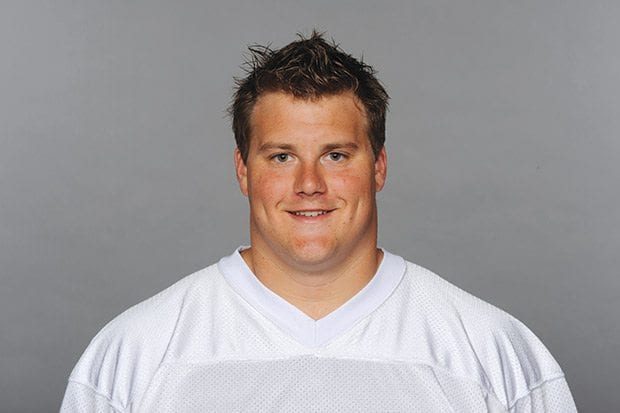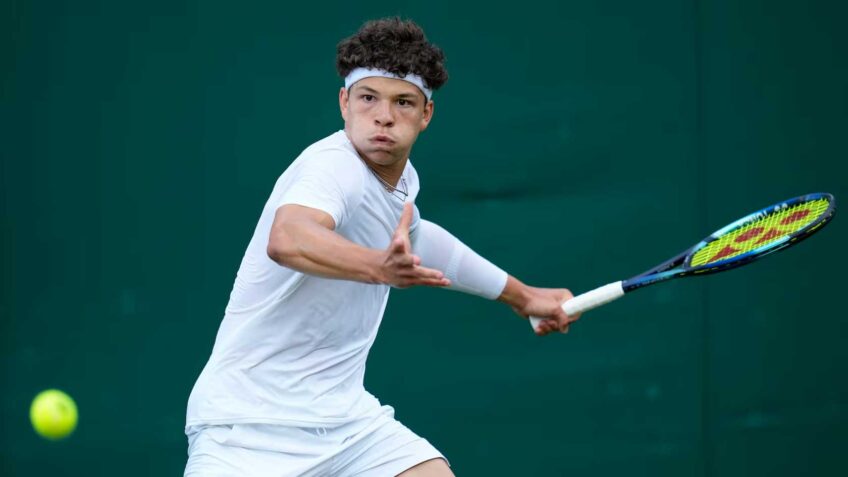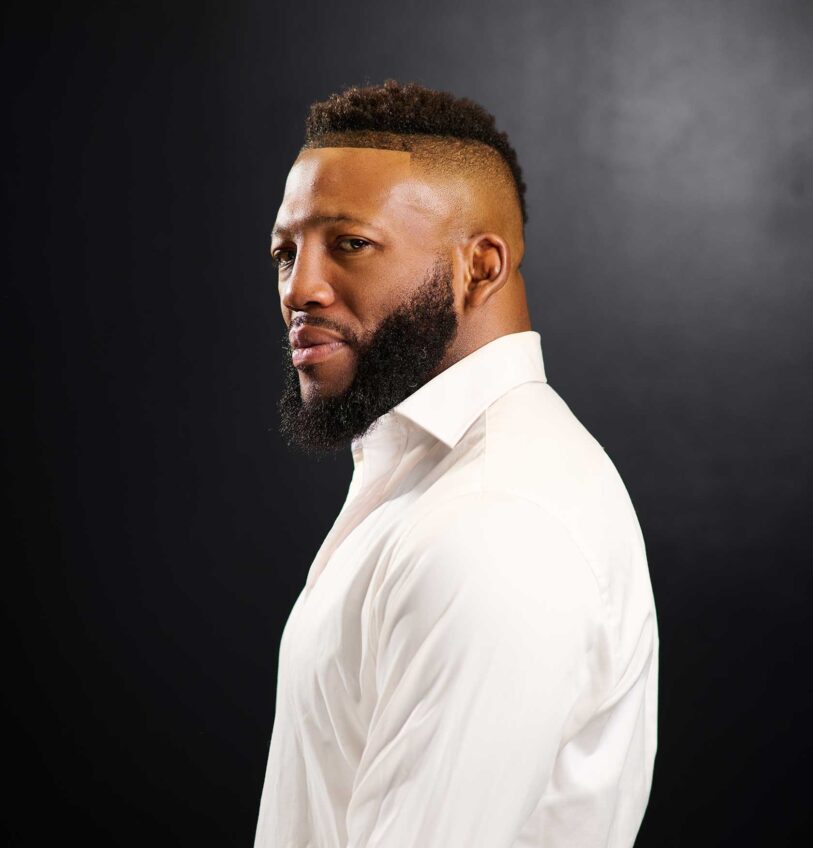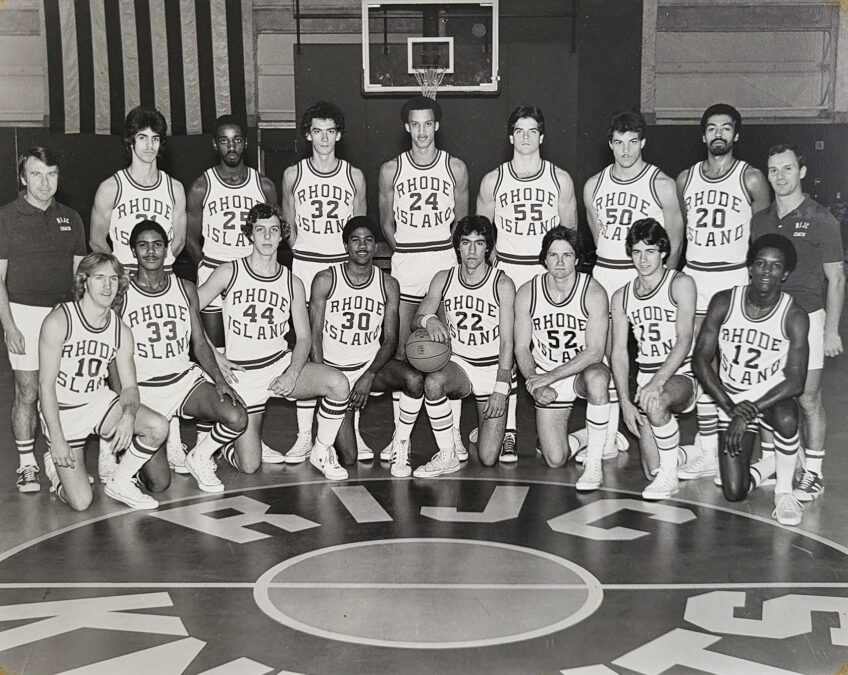

Jonathan Martin left the Dolphins citing concerns for his own safety.
The flood of news coverage surrounding the alleged harassment of Miami Dolphins player Jonathan Martin by teammate Richie Incognito has brought issues of racism and harassment into the national conversation.
The 24-year-old Martin is a Pittsburgh native and Stanford University graduate, who has played offensive tackle for the Dolphins for two seasons. On Oct. 28, he left the Dolphins, citing concerns about not feeling safe with the team, particular in the locker room.
Since his departure, details have emerged that Incognito, a 30-year-old, nine-year NFL veteran from Englewood, N.J., who graduated from the University of Nebraska, was one player that made graphic racial slurs and threats via voice mails and text messages toward Martin.
Incongito has publicly admitted that he made the racial slurs and threats, but he also claimed that Martin did the same and it was part of their friendship. At the same time, Incognito also claimed that the racial slurs were part of the normal culture of the locker room environment in Miami.
N. Jeremi Duru, a professor of law at American University’s Washington College of Law, who specializes in sports law, said the story shines a light on how race and education and socioeconomic status are playing out in the national discourse. He cites Miami Dolphin players who have publicly described Incognito as an “honorary black guy” based on his background and upbringing and toughness.
“The more concerning piece is there seems to be this sense among the Dolphins, and former teammates of Jonathan Martin, that Jonathan Martin is not really a black guy. That Richie Incognito is more of a black guy than Jonathan Martin,” Duru said. “This strikes me as really problematic and absurd.”
Duru emphasized that to view Martin as less black because of his education at Stanford and family background plays exactly into the black male stereotypes that so many having been fighting to change. He also said it is tragic that somehow the racist attacks on Martin are somehow viewed as less problematic because of this view.
“This all seems to be wrapped up in how people view Jonathan Martin and that is unfortunate,” he added.
Duru dealt with race issues in the NFL in his book, “Advancing the Ball: Race, Reformation, and the Quest for Equal Coaching Opportunity in the NFL.” The book examined the struggle for equal opportunity in coaching, but it also examined the legal ramifications of some of the practices that used to be predominant in the NFL and the changes that were made to eradicate them.
Though there is potential for a legal harassment suit in the Martin case, Duru believes it will likely be settled outside of court. But the case will nevertheless have legal ramifications for the NFL.
The NFL locker room is a workplace and if players are saying violent things and there is bullying going on that is workplace harassment, Duru pointed out.
“If it is condoned by the employer than they are implicated. And even if is not condoned but still there is an unsafe environment than they are still implicated,” he said.
“The idea of keeping this sort of stuff behind closed doors is a bunch of baloney just as if you had crimes going on in the locker room,” he added. “At the end of the day it is employment and it is harassment in the workplace, based on the facts as they are now.”
Duru said he is also concerned that the use of the n-word seems very prevalent in the Dolphins locker room culture and so few people involved, both white and black, show any concern about it.
Since his departure from the team, Martin has hired well known lawyer David Cornwell to pursue legal actions against his harassment by Incognito and other Dolphins players.
Miami Dolphins owner Stephen Ross addressed the issue publicly on Monday, saying that the Miami Dolphins organization has reached out to the NFL, acknowledging that an investigation has to take place and admitting the investigation should be led by the league and not just the Dolphins.
“We want to get to the bottom of it,” Ross said. “We want to get to hear what the real facts are.”
Gregory Parks, an assistant professor of law at Wake Forest University’s School of Law, who focuses on issues surrounding race bias and law and is also a recognized expert on hazing in black fraternities, says, regardless of the fact that Incognito seems to believe his use of the n-word is acceptable as a product of the Dolphins locker room culture and environment, it is not.
“The problem with the argument, and we do a quantitative study and some qualitative analysis of the issue, is that whites immersed in black culture don’t use the n-word around black people who actually give them a pass in using it,” Parks said. “Take, for example, white rappers — our study of white and black rappers revealed that while black rappers frequently use the word, it is almost never used by white rappers.
He seriously doubts that Incognito or any white player in the Dolphins locker room using the n-word truly felt there was no problem with it.
“I suspect they know there is a penalty to be paid for using that kind of language. The question, I suspect, would be whether — if the Dolphins won the Super Bowl and got to go to the White House — Incognito would ask the President of the United States, ‘What’s up, my nigger?’ I doubt it.
“If there are black Dolphin players who tolerate this language, it is one thing for him to use it in one-on-one discourse with them, but he cannot reasonably think he can use the word with other blacks,” Parks added. “As for racism, research on subconscious race bias suggests that those who automatically associate negative things with blacks and positive things with whites more easily use racial epithets. Maybe Incognito didn’t intend to be racist. That doesn’t mean that he did not use a widely known racist word, directed toward a racial minority, with a certain degree of hostility behind it.”
While a lot of the media coverage around the controversy, especially from sports media, has centered on how NFL players side on the issue of Martin bringing locker room and “team issues” to the public eye and who is right or wrong, some have addressed the looming legal ramifications.
ESPN’s Ashley Fox wrote on Nov. 9 that it is a workplace issue because an NFL locker room is a workplace and should not be exempt from the same laws that apply to all companies. She pointed out that the NFL addresses workplace harassment issues in its player policy manual with the clause: “Our Excellence in Workplace Conduct program is built upon our belief that all NFL players and prospective players have the right to work in a positive environment that is free from any and all forms of harassment, intimidation and discrimination.”
Fox’s angle seems to back up Duru’s belief that the Martin-Incognito saga is a legal issue that will have long-standing ramifications for the Dolphins and the NFL.
Duru emphasized that the NFL is going to have to work to “root out” the type of problematic locker room culture that has emerged out of Miami.
“There is certainly going to be a change with respect to the NFL’s articulation by what they will allow and not allow … I think the NFL will ultimately come down on this,” he said. “I think the NFL is going to at least publicly express its distain for it and create stronger policies to prohibit it.”
For his part, Ross has said he was “appalled” to hear some of the things that Martin claims Incognito said or texted to him.
Ross also promised to make changes to the Miami organization in light of the allegations that Martin has made and he said he is setting up a task force to examine and improve the environment inside the Dolphins’ locker room. This group includes some popular former players and coaches, including Don Shula, Dan Marino and Jason Taylor.






